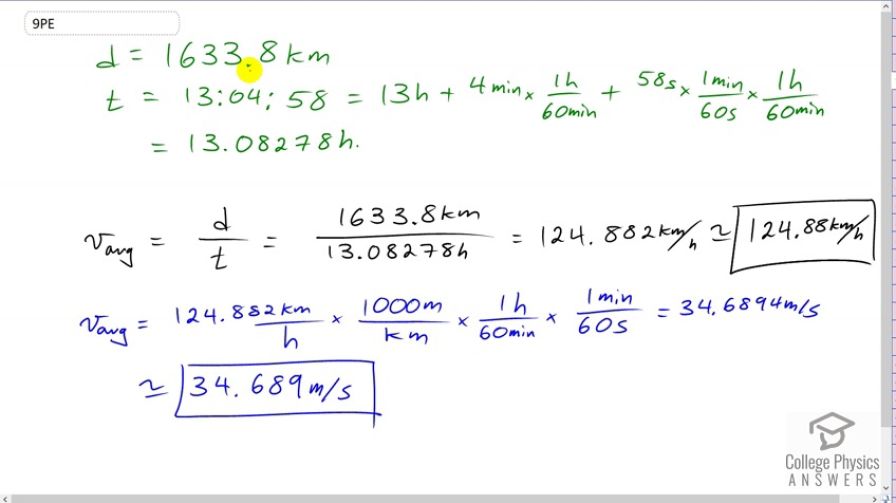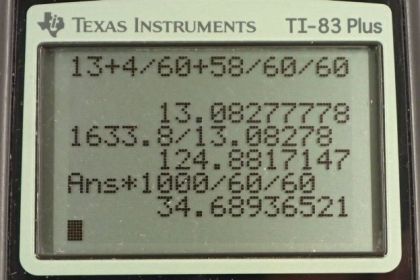Question
On May 26, 1934, a streamlined, stainless steel diesel train called the Zephyr set the world's nonstop long-distance speed record for trains. Its run from Denver to Chicago took 13 hours, 4 minutes, 58 seconds, and was witnessed by more than a million people along the route. The total distance traveled was 1633.8 km. What was its average speed in km/h and m/s?
Final Answer
or
Solution video
OpenStax College Physics, Chapter 2, Problem 9 (Problems & Exercises)

vote with a rating of
votes with an average rating of
.
Calculator Screenshots
Video Transcript
This is College Physics Answers with Shaun Dychko The Zephyr world record train of 1934 traveled 1633.8 kilometers. And the time it took to do it was 13 hours 4 minutes and 58 seconds. Now, one of the first things they do is to turn this number into something we can use for a calculation. And we'll turn this whole thing into a single decimal unit of hours. So, that's 13 hours plus 4 minutes times 1 hour for every 60 minutes And this gives us the number of hours in 4 minutes, which is a decimal, and then, plus 58 seconds times 1 minute for every 60 seconds, times 1 hour for every 60 minutes. And, this works out to 13.08278 hours, and that is the time that we can use in this fraction to find the average speed. So, the average speed is distance traveled over time. So, that's 1633.8 kilometers divided by 13.08278 hours, which works out to 124.88 kilometers per hour. And we have 5 significant figures there because our distance traveled at 5 significant figures and I suppose this time does as well. And then, the next step is to convert that into meters per second. And so, we multiply by 1000 meters for every kilometer that cancels the kilometers. And then, we have to take care of our time unit and turn the denominator into seconds. So, we multiply by 1 hour to make the hours cancel for every 60 minutes, and then multiply by 1 minute for every 60 seconds. And now, we're left with meters per second and that works out to 34.689 meters per second.
Comments
How do you know where to round the decimals to? To the tenth when not specified? Or by following sig figs?


